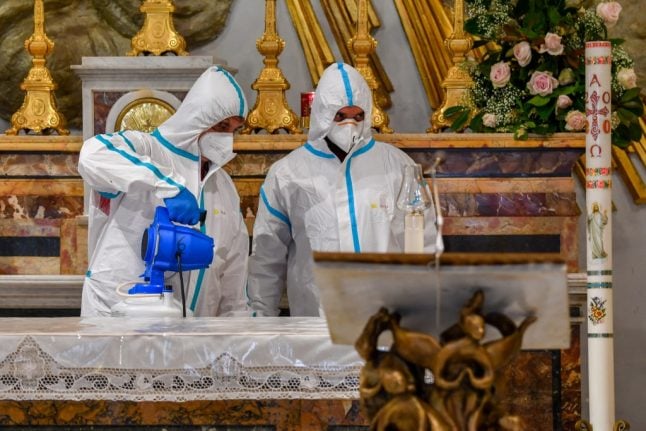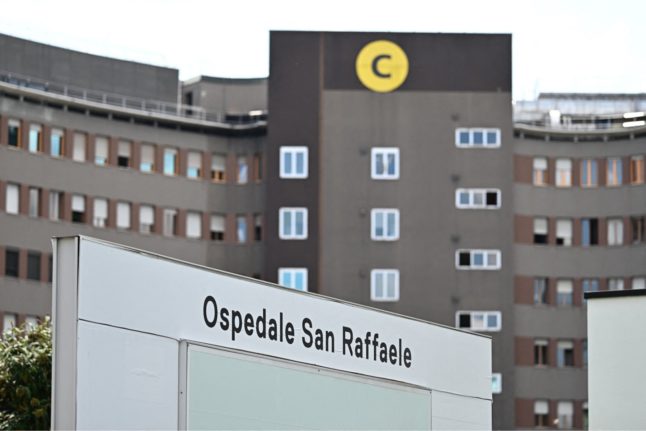We have chosen to make this article completely free for everyone. Our website relies on readers signing up as members. Please consider joining as a member. Scroll to the bottom for more information.
Main points:
- Italy passes 220,000 confirmed cases
- Death toll now over 31,000
- New cases continue to slow
- More reopenings expected from May 18th
What's the latest on the situation in Italy?
Another 888 cases of coronavirus were confirmed in Italy on Wednesday May 13th, meaning there have now been 222,104 cases in total since the outbreak began, including those patients now recovered or deceased.
There are currently 78,457 people known to be infected in Italy.
According to the latest data released by Italy's Department for Civil Protection, there were also 195 new deaths in 24 hours. This pushed the country's death toll up to 31,106.
While still worryingly high, the number of fatalities per day is significantly lower than its peak of nearly 1,000 in mid-March.
The latest data showed that a total of 112,541 people have now recovered.

New cases of coronavirus in Italy from late February to early May. Chart: Italian Civil Protection
Italy speeds up reopenings under phase two
Italian authorities on Monday gave the go-ahead for cafes, restaurants and hairdressers to open from May 18th.
This was originally planned for June 1st but has been moved forward.
Since May 4th, Italy has officially been in the second phase of its coronavirus lockdown, with some rules relaxed after eight weeks of nationwide orders to stay at home.
These are the key changes:
- Visiting relatives or loved ones within the same region is allowed.
- You can return your place of residence, even if it means travelling from one region to another.
- Outdoor exercise is permitted without restrictions on distance.
- Parks can reopen.
- Restaurants and cafes can serve takeaway.
- Funerals are allowed, with a maximum of 15 people attending.
- Face masks must be worn in all enclosed public spaces, including on public transport and in shops.
- Anyone with a temperature must stay home by law.
The current rules apply until May 17th, after which a new decree will come into force.
For more details, read our Q&A here.
What hasn't changed?
You still need to carry an autocertificazione ('self-certification') form when leaving home until at least May 17th, when the rules are set to be revised again.
Find the latest version of the form here.
Travel remains tightly restricted, including within your own region. You are only supposed to go outside to buy groceries and other essentials, go to work, visit a doctor or pharmacy, exercise, see relatives or for another urgent reason.
Read more about the rules on travel within Italy here.
Schools remain closed until at least September.
And you're still required to maintain at least a metre's distance from other people, including in shops, parks and on public transport.
Anyone with a temperature of 37.5 degrees or higher must not go out in public unless advised otherwise by a doctor.
The maximum fine for breaking quarantine rules is €3,000 euros. Penalties are even higher in some regions under local rules, and the most serious offences could result in prison terms.
Regional differences
The rules vary considerably around Italy, with some regional governments using their powers to reopen local shops and other businesses early.
Restrictions are expected to be lifted sooner in some regions than others, depending on how much new cases have slowed, how many hospital beds are available, and what capacity is in place to test and trace people who have the virus.
Check the website of your regione and comune to find out which rules apply where you are.
Read more about which regions are restarting earlier than others here.
While a few flights are still operating to and from Italy, anyone arriving in the country is barred from using public transport and obliged to self-isolate for 14 days.
How can I protect myself?
You should follow the government's guidance as well as taking the same precautions in Italy that you would anywhere else:
- Wash hands thoroughly and often with soap and water, especially after coughing and sneezing or before eating.
- Avoid touching your eyes, nose or mouth, especially with unwashed hands.
- Cover your nose and mouth when coughing or sneezing.
- Avoid close contact with others where possible, and especially people who have symptoms of respiratory illness.
- Wear a mask if you suspect you are ill, or if you are assisting someone else who is ill.
- Clean surfaces with alcohol- or chlorine-based disinfectants.
Do not take any antibiotics or antiviral medication unless it has been prescribed to you by a doctor.
You can find the latest information about the coronavirus in Italy from the Italian Health Ministry, your country's embassy, or the WHO.
The initial symptoms of Covid-19 include a cough, headache, fatigue, fever, aching and difficulty breathing.
Covid-19 is primarily spread through droplets released by an infected person when they cough, sneeze or speak, which may pass directly into someone else's mouth, nose or eyes or be transferred there via hands or objects.
Its incubation period is two to 14 days, with an average of seven days.
If you think you have the virus, do not go to hospital or your doctor's surgery: health authorities are worried about potentially infected people turning up at hospitals and passing on the virus.
READ ALSO: Italy's dedicated coronavirus phone numbers and websites
A special Italian health ministry helpline has been launched with more information on the virus and how to avoid getting it. Callers to the 1500 number can get more information in Italian, English and Chinese.
In an emergency situation, you should always call the emergency number 112.
a fever – una febbre
a headache – un mal di testa
a cough – una tosse
a cold – un raffreddore
the flu – l'influenza
the coronavirus – il coronavirus
Find all The Local's coverage of the coronavirus outbreak in Italy here.
*****
While a few flights are still operating to and from Italy, anyone arriving in the country is barred from using public transport for 14 days.



 Please whitelist us to continue reading.
Please whitelist us to continue reading.
Changing the caption doesn’t mean the report is new or different. Mispelt words included… please don’t report as if new article it’s not… its regurgitated material… very frustrating. Not renewing subscription….